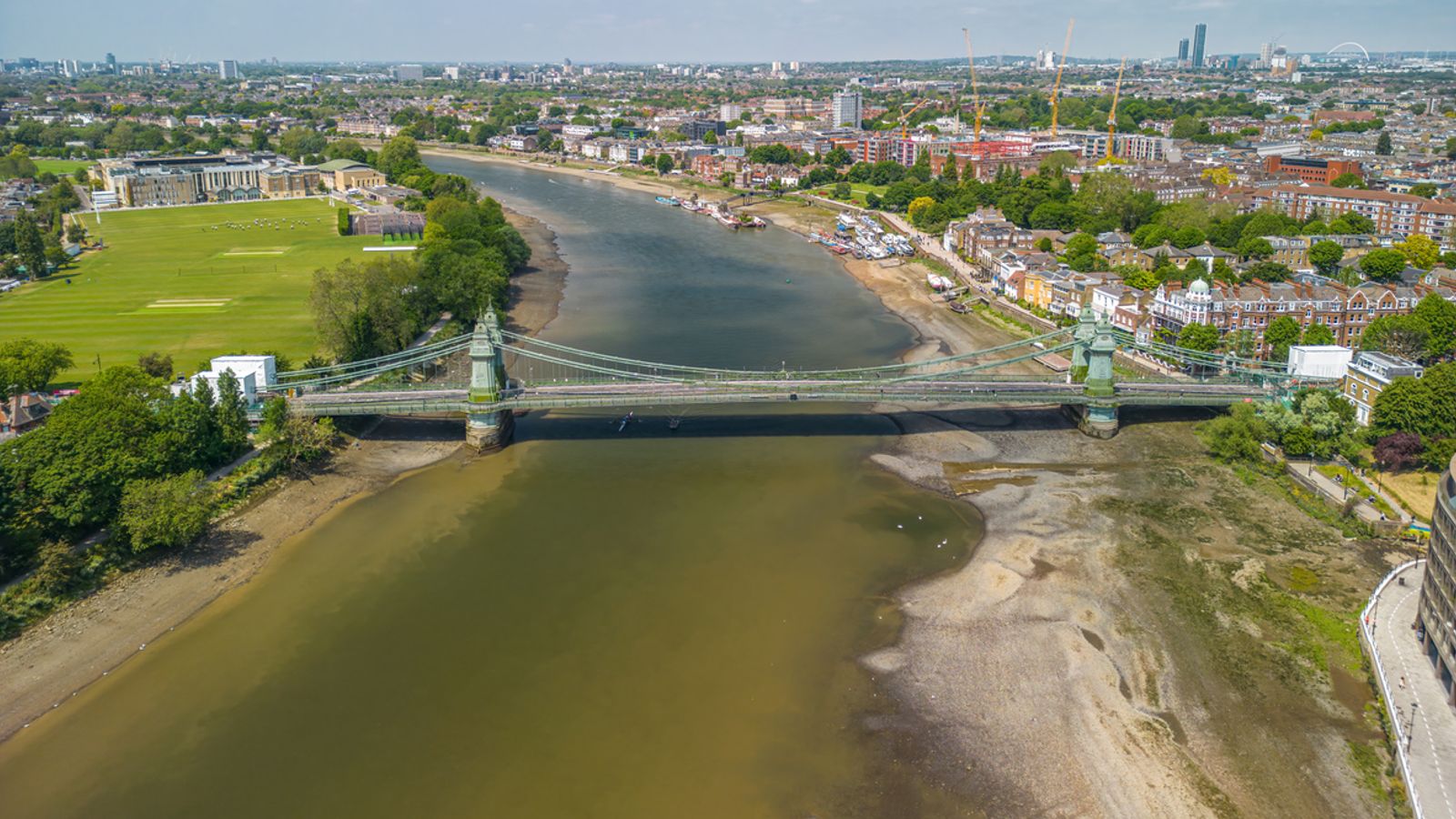A campaign group has found “alarmingly high” levels of the bacteria E.coli along a stretch of the River Thames ahead of the historic Oxbridge Boat Race this weekend.
The bacteria, which can cause a range of infections via contaminated water, was discovered by River Action and the Fulham Reach Boat Club between 28 February and 26 March using an E.coli analyser.
The 16 tests around Hammersmith Bridge in west London found an average of 2,869 E.coli colony forming units (CFU) per 100ml of water, failing to meet bathing water quality standards of below 1,000 CFU per 100ml.
River Action also recorded its highest level of 9,801 CFU meaning it was nearly 10 times higher than levels found in bathing waters graded as “poor” by Environment Agency standards.
The government advises against bathing in such waters, with “poor” being the worst out of the four classifications.
The testing locations suggested the source of pollution is from Thames Water – the country’s largest household supplier – discharging sewage directly into the Thames and its tributaries, River Action said.
This is based on publicly available data which showed that the water company had discharged sewage into the Greater London area of the River Thames for 1,914 hours from the start of 2024 up to 26 March. This is equivalent to 79 out of the 85 days.
On Saturday, the University of Cambridge and rivals the University of Oxford will battle it out on the river for bragging rights – and they are to row across the stretch where E.coli was found.
Due to the proximity to polluted water, River Action, British Rowing and The Rivers Trust have issued new guidance to clubs across the UK, which has been included in the Gemini Boat Race briefing packs to both universities.
Tips to rowers include covering cuts, grazes, and blisters with waterproof dressings, taking care not to swallow river water that splashes close to the mouth, wearing suitable footwear when launching or recovering a boat, and cleaning all equipment thoroughly.
Keep up with all the latest news from the UK and around the world by following Sky News
A ‘tragic situation’
Head of River Action James Wallace said issuing athletes with health guidance ahead of the race on the Thames was a “tragic situation”.
Mr Wallace added: “Our water quality results show what happens after decades of neglect by an unregulated water company, Thames Water.”
The organisation said rowers, communities and conservationists are uniting to ask the government to enforce the law and prosecute polluters.
“Everyone should be able to enjoy our rivers and seas without risking their health,” Mr Wallace said.
Read more:
Thames Water reveals leap in pollution incidents
Body found in River Thames believed to be missing student
Double world and European champion rower Imogen Grant said: “As a rower, the water I row on is my field of play, and the results of the E.coli testing show that rowers are putting their health at risk to do the sport they love.”
The triple Boat Race winner with Cambridge added that those who rely on rivers for work and recreation were “being choked with sewage and pollution” as she called for more to be done to improve water quality in the UK.
Be the first to get Breaking News
Install the Sky News app for free
E.coli can cause a range of infections like cystitis (bladder infection), stomach cramps and vomiting, with the worst cases leading to life-threatening blood poisoning.
It can come from a variety of sources including animal faeces, agricultural waste, road run-off and sewage.
Please use Chrome browser for a more accessible video player
A Thames Water spokesperson told Sky News: “We have experienced higher than average long-term rainfall across London and the Thames Valley with groundwater levels exceptionally high for the time of the year.
“The overflows are designed to operate automatically when the sewer network is about to be overwhelmed which then releases diluted wastewater into rivers, rather than letting it back up into people’s homes.
“We are working hard to make these discharges unnecessary and have published plans to upgrade over 250 of our sites, including a £100m upgrade of our Mogden sewage treatment works in southwest London to treat the high volumes of incoming sewage and reduce the need for overflows during wet weather.”






